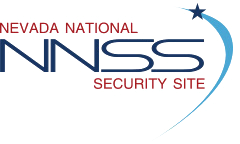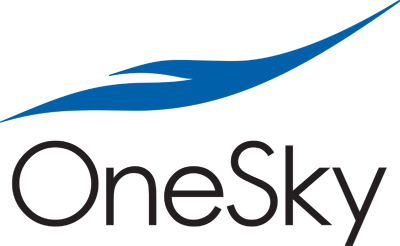Research Projects in Data-Enabled Industrial Mathematics
ERAU Research Experience for Undergraduates

Summer 2021 REU
INDUSTRIAL PARTNERS

|

|

|

|
| Nevada National Security Site, Las Vegas, NV | Pacific Northwest National Laboratory, Richland, WA | OneSky Flights, MicaPlex, Daytona Beach, FL | Florida Democratic Party, Daytona Beach, FL |
Projects
Enhanced Deep Learning with Applications to Diabetic Retinopathy and National Security
Industrial Sponsor: Nevada National Security Site, Las Vegas, NV
Description and resultsStudents: Brown Mathew ('22) University of Toledo - Pure Mathematics Zheng Ying ('23) DB BS Computational Mathematic - Data Science Track Danaher Brian ('22) DB BS Aerospace Engineering/2nd Major Computational Math Description: The Signal Processing and Applied Mathematics research group at the Nevada National Security Site (NNSS) is pleased to partner with students at Embry-Riddle Aeronautical University (ERAU) to study and develop a novel pooling method for convolutional neural networks, using a publicly available data set. Most advances in CNNs have been made in the last 10 years and it is still a very interesting, quick-moving field of research. While most image data sets perform well under existing CNN architectures, there are still challenging data sets which require further advancements before they can be considered “solved" problems. The main goal of this project was to examine pooling layer using new algorithm - variable stride. Since it has been developed recently, it has not been used or tested compared to the other pooling methods. To examine this method, a small data set of diabetic retinopathy eye images were given to use to implement into the convolutional neural network (CNN). Variable stride has been evaluated using metrics such as the ROC curve. Along with the examination, variable stride was compared to AvgPool and MaxPool. Major outcomes:
|
Advance analysis of Hispanic voters activity in Florida through sub-ethnicities identification
Industrial Sponsor: Florida Democratic Party, Daytona Beach, FL
Description and resultsStudents: Hernandez Nimzay (‘22) - Universidad Ana G. Mendez - Recinto Gurabo – Applied mathematics Outlaw Abigail (‘23) - Converse College – Mathematics and Data Science Soto-Ortiz Kamila (’23) DB BS Astronomy & Astrophysics/ Daytona Comp Science Minor Rodriguez Naomi (‘22) DB BS Computational Mathematic Engineering Application Track Description: The Hispanic population is considered to be those that identify with a “Spanish-speaking background and trace their origin or descent from… Spanish-speaking countries”. Hispanics are currently about a quarter of Florida’s population and they are expected increase in population to 33% by 2045. Understanding how Hispanics vote then becomes a very crucial task for future elections, due to them being a key demographic. For starters, certain social factors such as “religion, region, and social class appear to be the characteristics that have most closely related to voting”. The factors considered in this project are the voter’s age, zip code population density, income and Hispanic group Comprehending these factors can potentially capture previously unseen voting trends in the Hispanic community. These are being compared with the voter’s activity and party affiliation. Party affiliation and voter activity are also compared for general party affiliation behavior. Publication in preparation Major outcomes:
|
Future in the VTOL and EVTOL Industries
Industrial Sponsor: OneSky, MicaPlex, Daytona Beach, FL
Description and resultsStudents: ERAU REU: Research Projects in Data-Enabled Industrial Mathematics (Summer 2021) John Redman ('22) Aerospace Engineering Description: OneSky Flight supports the technology needs of seven established private aviation brands; Flexjet, Sentient Jet, FXAIR, PrivateFly, AAG, Halo, and Sirio. With AAG and Halo as recent acquisitions, research must be done around the VTOL/EVTOL industry, regarding its growth and evolution. The purpose of the project is to focus on this research and draw valuable conclusions: 1. Assess the pertinent industry data required and aggregate this data. 2. Predict the next hotspot locations of greatest importance and pace of growth in the VTOL/EVTOL industry. 3. Determine what early investments in infrastructure, marketing, aircraft placement, etc. should be made in future hotspots to capture maximum market share. A numerical analysis was done to see how the past could predict the future, while it showed EV Chagrining Stations have been exponentially rising and Heliports have been declining. Visuals on map further concluded that hotspots were located on the east and west coasts. For travel patterns, data showed there were differences between Private Jets and VTOLs since less than 3% of the data were flights 30 minutes or less. This data set further proved where the most used airports were, leading to recommendations to be made to OneSky. The recommendations for future hotspots were for OneSky to focus on east and west coast for both VTOLs and EVTOLs. Since OneSky own AGG and is located on the east coast, they should expand their VTOL fleet to the west coast. For EVTOLs, both New York City and Los Angles, California look like the most promising cities for them to start the industry. Also, these cities are in close proximity to other cities meaning future expansion could be possible after proven success. Major outcomes:
|
Understanding Regional and Local Climate Dynamics from Gridded Data Sets
Industrial Sponsor: Pacific Northwest National Laboratory, Richland, WA
Description and resultsStudents: ERAU REU: Research Projects in Data-Enabled Industrial Mathematics (Summer 2021) Penunuri Grace ('22) University of Portland - Applied Mathematics Description: he Disruptive Technologies Group in the National Security Directorate of Pacific Northwest National Laboratory is enthusiastic to collaborate with students participating in the Embry- Riddle Aeronautical University Research Experience for Undergraduates (REU) on a research project whose goal is to develop modern analytics approaches to analyzing regional and local climate dynamics. Characterizing the natures of the changes in temperature and precipitation helps us to understand the mechanisms behind the evolution of regional climates, which do not always track with the larger-scale trends. This can help with regional conservation efforts and help to protect some of the most fragile environments in the US. The task posed by the Pacific Northwest National Laboratory is to characterize the nature of climate change in the Northeast United States through gridded data sets collected from the PRISM website. By looking at local climate trends we can locate specific environments that are most effected by climate change that may be overlooked on larger scale climate change research. The main goal of this project is to compare, contrast and analyze the quantities of interest (QOI’s) over the span of 1980-2020 using the data from the PRISM Climate Group in order to recognize trends in regional areas. The QOI’s are the minimum, maximum, and mean temperatures as well as the total precipitation of the selected regions. To analyze the years 180-2020 the data. From 1951-2020 needs to be accessed and analyzed. To best analyze the time period the 30 year normal of each year were computed. After this computation the spatial and temporal analysis of the time period was conducted. In conclusion there are spots in the Northeast region that do not follow the trends that the region as a whole experience. These local environments are lost in larger scale research, overpowered by the thousands of other values that follow the normal trend. It is important to scale down research in Climate change so that these fragile local environments are not overlooked. Major outcomes:
|
Social Media Analysis of High Net-Worth Individuals
Industrial Sponsor: OneSky, MicaPlex, Daytona Beach, FL
Description and resultsStudents: ERAU REU: Research Projects in Data-Enabled Industrial Mathematics (Summer 2021) Piper Hasenberg ('22) University of West Florida - Mathematics Description: OneSky Flight supports the technology needs of seven established private aviation brands; Flexjet, Sentient Jet, FXAIR, PrivateFly, AAG, Halo, and Sirio. The majority of clients for these companies are high net-worth individuals, who travel for business and pleasure. Due to the unique online behaviors of these clients, research must be done on their social media preferences and activity. The purpose of the project is to focus on this research and draw valuable conclusions: Determine the most critical social media features and their degree of importance/value. Determine the collection of features that would create the optimal experience for these individuals who are all part of the Flexjet Owner club. Ensure attention is given to how differences in net-worth, age, industry, etc. affect the importance of features. Note that many of these individuals have been known to value privacy the most when it comes to their data. We are confident that the suggested features and services can be combined to create a successful platform for the intended target audience being Flexjet’s client base. The nine platforms analyzed show that social media primarily targets audiences that are young in age and have a household income of around $65,000. Due to the combination of these two demographics, it can be concluded that social media does not target the Flexjet client base, so the users of the proposed platform would not use the platform if it was primarily created as a social media platform. With a combination of a concierge and user-to-user interactions through social media features, each user will have a unique experience tailored to their wants and needs. Through this research, it has been interesting to see how social media is targeting certain demographics and how high-net-worth individuals may seem as though they are active on social media, but there are few individuals in the target demographic that actually are. Major outcomes:
|
Students
 |
 |
 |
| Penunuri Grace ('22) University of Portland Applied Mathematics | Piper Hasenberg ('22) University of West Florida Mathematics | Brown Mathew ('22) University of Toledo Pure Mathematics |
 |
 |
 |
| Hernandez Nimzay (‘22) Universidad Ana G. Mendez - Recinto Gurabo Applied mathematics | Outlaw Abigail (‘23) Converse College Mathematics and Data Science | Soto-Ortiz Kamila (’23)ERAU Astronomy & Astrophysics |
 |
 |
 |
| Rodriguez Naomi (‘22) ERAU Computational Mathematic | John Redman ('22) ERAU Aerospace Engineering | Danaher Brian ('22) ERAU Aerospace Engineering/ Computational Math |
 |
||
| Zheng Ying ('23) ERAU Computational Mathematic - Data Science Track |
CONTACT INFORMATION
Please contact REU site coordinator Dr. Berezovski at berezovm@erau.edu for any inquiry about REU Site and application process.

